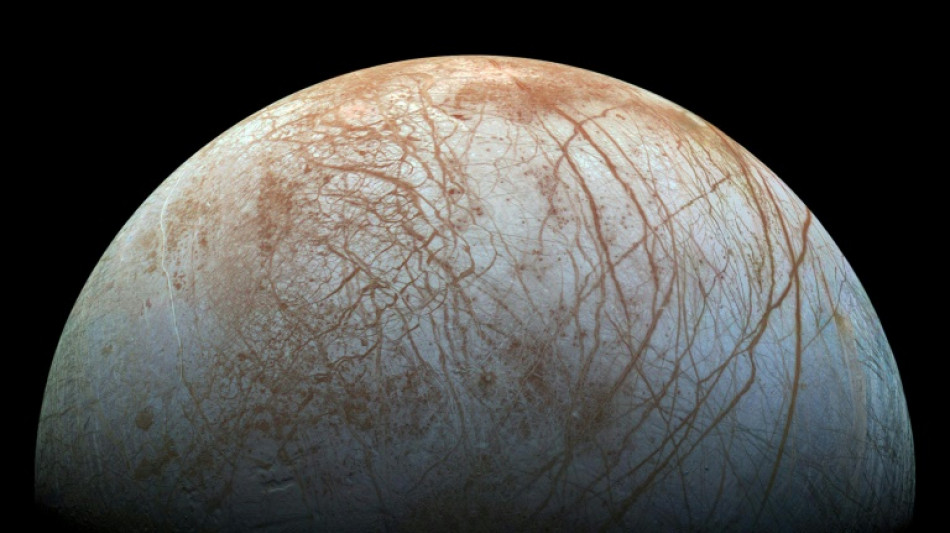
-
 Imperious Sinner barrels into Australian Open round three
Imperious Sinner barrels into Australian Open round three
-
Storms, heavy rain kill 9 children across Afghanistan

-
 Games giant Ubisoft suffers share price collapse
Games giant Ubisoft suffers share price collapse
-
Exhausted Wawrinka battles on in Melbourne farewell after five-set epic
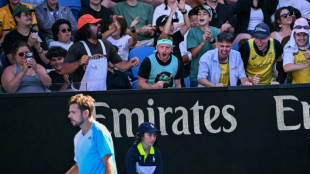
-
 'Too dangerous to go to hospital': a glimpse into Iran's protest crackdown
'Too dangerous to go to hospital': a glimpse into Iran's protest crackdown
-
Bruised European allies wary after Trump's Greenland climbdown

-
 Austrian ex-agent goes on trial in Russia spying case
Austrian ex-agent goes on trial in Russia spying case
-
Japan suspends restart of world's biggest nuclear plant
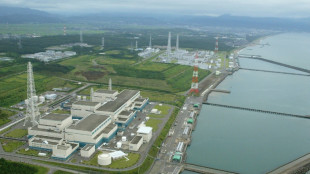
-
 Djokovic, Swiatek roll into Melbourne third round, Keys defence alive
Djokovic, Swiatek roll into Melbourne third round, Keys defence alive
-
New Zealand landslips kill at least two, others missing
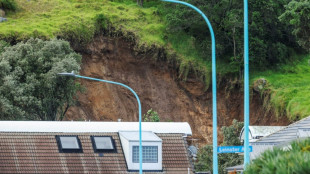
-
 Djokovic says heaving Australian Open crowds 'good problem'
Djokovic says heaving Australian Open crowds 'good problem'
-
Swiatek in cruise control to make Australian Open third round

-
 Austrian ex-agent to go on trial in Russia spying case
Austrian ex-agent to go on trial in Russia spying case
-
Bangladesh launches campaigns for first post-Hasina elections

-
 Afghan resistance museum gets revamp under Taliban rule
Afghan resistance museum gets revamp under Taliban rule
-
Multiple people missing in New Zealand landslips
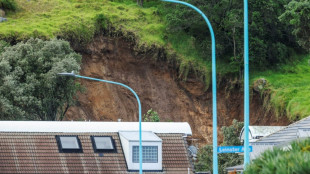
-
 Sundance Film Festival hits Utah, one last time
Sundance Film Festival hits Utah, one last time
-
Philippines convicts journalist on terror charge called 'absurd'

-
 Anisimova grinds down Siniakova in 'crazy' Australian Open clash
Anisimova grinds down Siniakova in 'crazy' Australian Open clash
-
Djokovic rolls into Melbourne third round, Keys defence alive

-
 Vine, Narvaez take control after dominant Tour Down Under stage win
Vine, Narvaez take control after dominant Tour Down Under stage win
-
Chile police arrest suspect over deadly wildfires

-
 Djokovic eases into Melbourne third round - with help from a tree
Djokovic eases into Melbourne third round - with help from a tree
-
Keys draws on champion mindset to make Australian Open third round

-
 Knicks halt losing streak with record 120-66 thrashing of Nets
Knicks halt losing streak with record 120-66 thrashing of Nets
-
Philippine President Marcos hit with impeachment complaint

-
 Trump to unveil 'Board of Peace' at Davos after Greenland backtrack
Trump to unveil 'Board of Peace' at Davos after Greenland backtrack
-
Bitter-sweet as Pegula crushes doubles partner at Australian Open

-
 Hong Kong starts security trial of Tiananmen vigil organisers
Hong Kong starts security trial of Tiananmen vigil organisers
-
Keys into Melbourne third round with Sinner, Djokovic primed

-
 Bangladesh launches campaigns for first post-Hasina polls
Bangladesh launches campaigns for first post-Hasina polls
-
Stocks track Wall St rally as Trump cools tariff threats in Davos

-
 South Korea's economy grew just 1% in 2025, lowest in five years
South Korea's economy grew just 1% in 2025, lowest in five years
-
Snowboard champ Hirano suffers fractures ahead of Olympics

-
 'They poisoned us': grappling with deadly impact of nuclear testing
'They poisoned us': grappling with deadly impact of nuclear testing
-
Keys blows hot and cold before making Australian Open third round

-
 Philippine journalist found guilty of terror financing
Philippine journalist found guilty of terror financing
-
Greenlanders doubtful over Trump resolution
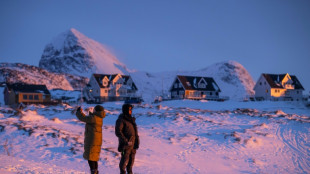
-
 Real Madrid top football rich list as Liverpool surge
Real Madrid top football rich list as Liverpool surge
-
'One Battle After Another,' 'Sinners' tipped to top Oscar noms

-
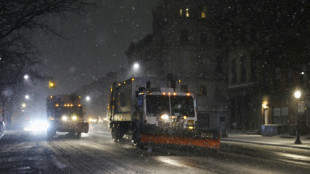 Higher heating costs add to US affordability crunch
Higher heating costs add to US affordability crunch
-
Eight stadiums to host 2027 Rugby World Cup matches in Australia
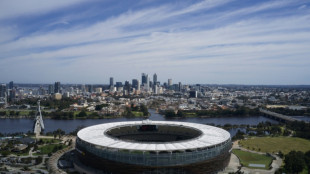
-
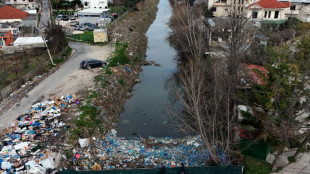 Plastics everywhere, and the myth that made it possible
Plastics everywhere, and the myth that made it possible
-
Interim Venezuela leader to visit US

-
 Australia holds day of mourning for Bondi Beach shooting victims
Australia holds day of mourning for Bondi Beach shooting victims
-
Liverpool cruise as Bayern reach Champions League last 16

-
 Fermin Lopez brace leads Barca to win at Slavia Prague
Fermin Lopez brace leads Barca to win at Slavia Prague
-
Newcastle pounce on PSV errors to boost Champions League last-16 bid

-
 Fermin Lopez brace hands Barca win at Slavia Prague
Fermin Lopez brace hands Barca win at Slavia Prague
-
Kane double fires Bayern into Champions League last 16


Hidden ocean the source of CO2 on Jupiter moon: research
Carbon dioxide detected on Jupiter's moon Europa comes from the vast ocean beneath its icy shell, research using James Webb Space Telescope data indicated on Thursday, potentially bolstering hopes the hidden water could harbour life.
Scientists are confident there is a huge ocean of saltwater kilometres below Europa's ice-covered surface, making the moon a prime candidate for hosting extra-terrestrial life in our Solar System.
But determining whether this concealed ocean has the right chemical elements to support life has been difficult.
Carbon dioxide -- one of the key building blocks of life -- has been detected on Europa's surface, but whether it rose up from the ocean below remained an open question.
Aiming to find an answer, two US-led teams of researchers used data from the Webb telescope's near-infrared spectrometer to map CO2 on the surface of Europa, publishing their results in separate studies in the journal Science.
The most CO2 was in a 1,800 kilometre-wide (1,120 mile) area called Tara Regio, where there is a lot of "chaos terrain" with jagged ridges and cracks.
Exactly what creates chaos terrain is not well understood, but one theory is that warm water from the ocean rises up to melt the surface ice, which then re-freezes over time into new uneven crags.
The first study used the Webb data to look at whether the CO2 could have come from somewhere other than the ocean below -- hitching a ride on a meteorite, for example.
Samantha Trumbo, a planetary scientist at Cornell University and the study's lead author, told AFP they concluded that the carbon was "ultimately derived from the interior, likely the internal ocean".
But the researchers could not rule out that the carbon came up from the planet's interior as rock-like carbonate minerals, which irradiation could then have broken apart to become CO2.
- 'Very exciting' -
Table salt has also been detected in Tara Regio -- making the area significantly more yellow than the rest of Europa's scarred white plains -- and scientists think it may also have come up from the ocean.
"So now we've got salt, we've got CO2: we're starting to learn a little bit more what that internal chemistry might look like," Trumbo said.
Looking at the same Webb data, the second study also indicated that "carbon is sourced from within Europa".
The NASA-led researchers had also hoped to find plumes of water or volatile gases shooting out of the moon's surface, but failed to spot any.
Two major space missions plan to get a closer look at Europa and its mysterious ocean.
The European Space Agency's Jupiter moon probe Juice launched in April, while NASA's Europa Clipper mission is scheduled to blast off in October 2024.
Juice project scientist Olivier Witasse welcomed the two new studies, saying they were "very exciting".
When Juice flies past Europa twice in 2032, it will collect "a wealth of new information," including about surface chemistry, he told AFP.
Juice will also look at two of Jupiter's other moons -- Ganymede and Callisto -- where carbon has been detected.
Witasse emphasised that the goal of the Juice mission, like the Europa Clipper, is to find out whether these icy moons have the right conditions to support life -- they will not be able to confirm if aliens exist.
And even if some future mission does discover life, anything able to live in such extreme conditions under more than 10 kilometres of ice is expected to be tiny, such as primitive microbes.
D.Schlegel--VB



